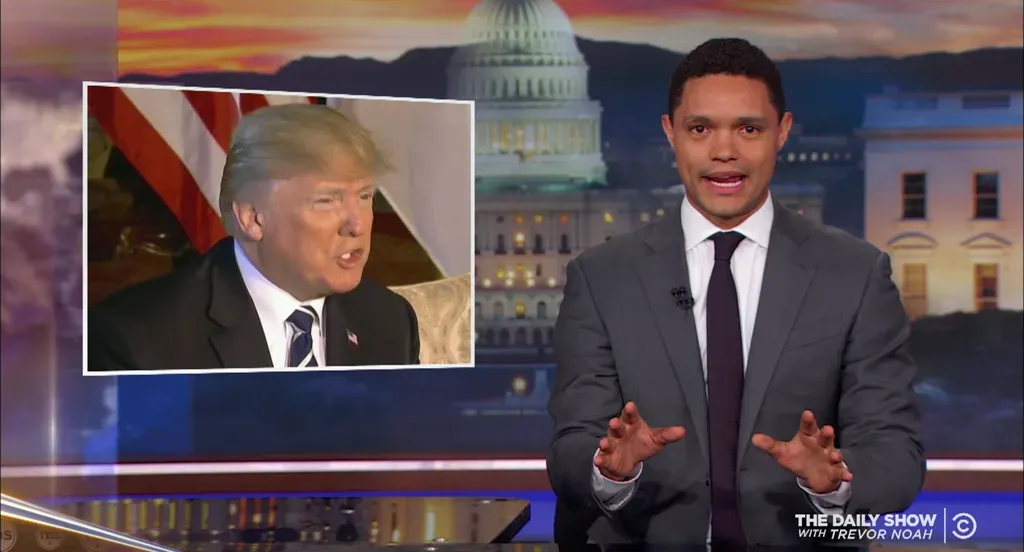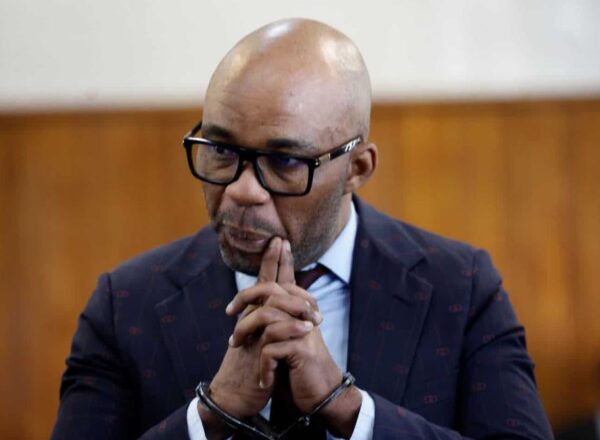
In recent discussions surrounding controversial statements made by Donald Trump regarding alleged ‘white genocide’ in South Africa, comedian Trevor Noah has found himself at the center of a heated debate. Despite explicitly stating his connection and commitment to South African issues while living abroad, Noah has faced criticism for not making a public stance against Trump’s claims, leading to accusations of insufficient patriotism. The uproar intensified when actress Viola Davis, known for her strong ties to South Africa, passionately condemned Trump’s assertions, calling attention to the country’s historical context of apartheid. As South Africans express disappointment over Noah’s perceived silence, the discourse unveils the expectations placed on public figures in the face of political rhetoric and the complexities of their international identities.
Trevor Noah’s Silence: A Cause for National Criticism
Trevor Noah has recently faced significant backlash for his perceived silence regarding Donald Trump’s claims of ‘white genocide’ in South Africa. Critics argue that as a prominent South African comedian and host of ‘The Daily Show,’ Noah has a unique platform from which he could speak out against such controversial statements. Many South Africans feel a sense of betrayal, expecting Noah to leverage his global influence to challenge misinformation that could severely impact the perceptions of his homeland. This outrage has intensified as comments from celebrities like Viola Davis emphasize the disparaging nature of Trump’s accusations, thus raising the stakes for Noah to publicly address these claims.
Despite stating that he closely follows South African events from abroad, Noah’s lack of a direct response has fueled accusations of disloyalty and insensitivity to the socio-political climate back home. Critics argue that while Noah enjoys fame and success internationally, he should not ignore the struggles and narratives that define South Africa’s past and present. The expectation for him to act as an ambassador of his homeland’s legacy is mounting, contributing to a growing narrative that sees his silence as complicity in the ongoing dialogue around race and identity in South Africa.
The Role of International Celebrities in Political Discourse
The controversy surrounding Trevor Noah is reflective of a broader issue regarding the responsibility of international celebrities in political discourse. Figures like Viola Davis, who openly criticized Trump’s claims, exemplify how celebrity voices can shape public perception and influence critical discussions. Davis, through her personal experiences in South Africa, denounces the narrative put forth by Trump, asserting that the realities of apartheid and its aftermath cannot be ignored. Her willingness to confront problematic discourse highlights the potential impact of celebrity engagement in political matters and showcases how cultural figures can act as allies to movements for social justice.
This situation illustrates a dynamic environment where public figures are increasingly expected to take stances on global issues, particularly those involving race and inequality. Many comedians, including Noah, have a history of addressing social injustices through humor and satire. However, with great visibility comes the expectation for accountability. As conversations about race continue to dominate the global stage, the hesitance of celebrities to confront uncomfortable realities, such as Trump’s allegations, raises questions about their obligations to their roots and the people who look up to them.
Understanding the Reaction to Trump’s Claims: A Broader Context
The reactions to Trump’s claims of ‘white genocide’ in South Africa have sparked discussions about the historical and socio-political context in which these statements operate. Critics, including comedians like Vic Mensa, have pointed out the absurdity of such claims, given South Africa’s complex demographic and economic history. Emphasizing that the wealthiest 10% of the population predominantly consists of white individuals, Mensa highlights the persistence of inequality and the ongoing struggles faced by Black South Africans. This critical perspective underlines the importance of informed narratives in combating misinformation perpetuated by prominent political figures.
Moreover, the notion of white South Africans seeking refuge under the premise of an ‘imagined genocide’ reveals deeper tensions surrounding racial identity and historical trauma. Media commentary from various figures around the world, including social commentators, reinforces the need for contextual understanding of South Africa’s past and its current realities. As international audiences engage with narratives shaped by political rhetoric, it becomes crucial for voices like Noah’s to articulate the truth rooted in lived experiences—an essential factor in fostering a nuanced global dialogue that respects the complexities of South African history.
In summary, the controversy surrounding Trevor Noah’s silence on Donald Trump’s claims of ‘white genocide’ in South Africa highlights the complexities of patriotism and public expectation from influential figures. Criticism has been directed at Noah for not speaking out against Trump’s incendiary rhetoric, especially given his prominent platform as the host of The Daily Show and his continuing connection to South African affairs. While figures like Viola Davis passionately defended the reality of South Africa’s socio-political landscape, calling out the falsehood of Trump’s assertions, Noah’s muted response has generated disappointment among some of his compatriots who expect him to utilize his global influence. This situation underscores a growing divide in perceptions of loyalty and responsibility among South African expatriates amidst ongoing political discourse surrounding race and history in the country.




